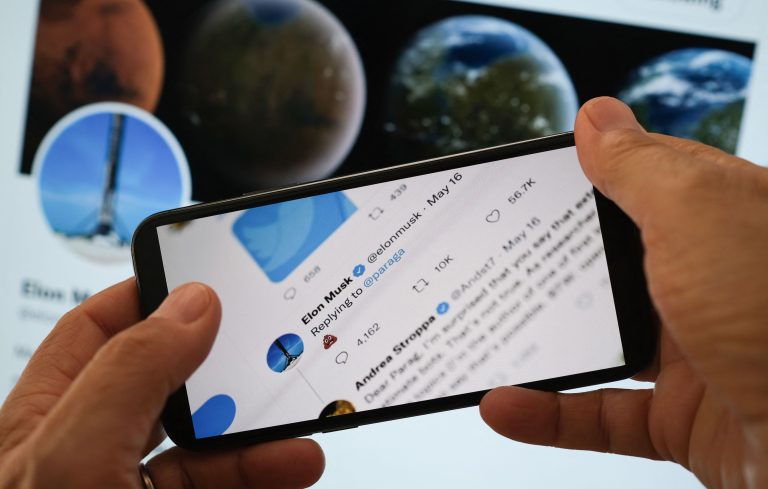On Sept. 30, heated private messages between Elon Musk and Twitter CEO Parag Agrawal were revealed in a court filing. According to the messages, Musk and Agrawal appeared to have hit it off with each other initially, only for that growing bond to dive-bomb into hostility following Musk’s tweet regarding Twitter “dying.”
Before the fallout
Looking at the messages filed by Musk’s lawyers, originally there appeared to be nothing but excitement and optimism between Musk and Agrawal, with the latter seemingly happy over the promise of Musk’s active role in Twitter.
“Hey Elon — great to be connected directly. Would love to chat,” Agrawal wrote on Mar. 27, according to the BBC.
Musk liked the message and agreed to meet for dinner at an Airbnb near San Jose — which Twitter co-CEO Bret Taylor described a few days later as “the weirdest place I’ve had a meeting recently.”
Afterwards, Agrawal expressed how “super excited” he was after the announcement that Musk would join the Twitter board. Musk, in return, shared how he “loved our conversations,” the Associated Press reported.
Success
You are now signed up for our newsletter
Success
Check your email to complete sign up
The news of Musk’s involvement drew widespread attention from celebrities and other significant figures.
“Are you going to liberate twitter from the censorship happy mob?” podcaster Joe Rogan asked on Apr. 4, to which Musk replied, “I will provide advice, which they may or may not choose to follow.”
CBS anchor Gayle King asked on Apr. 6 if she could interview Musk about the Twitter deal.
“Have you missed me. Are you ready to do a proper sit down with me? So much to discuss! Especially with your Twitter play… what do I need to do???” Gayle commented.
“The whole Twitter thing is getting blown out of proportion,” Musk told King, adding that a “Twitter edit button is coming.”
Justin Roiland, co-creator of “Rick and Morty”, suggested on Apr. 6 that Musk could utilize technology from the former’s friends to validate authentic identities on Twitter, following Musk’s stance against “fake and spam accounts” on Twitter.
On Apr. 5, former Twitter CEO Jack Dorsey told Agrawal that Musk was an “incredible engineer,” but thought the board was “terrible.”
On Apr. 7, Agrawal and Musk acted on their budding relationship, sharing their mutual love of engineering.
“Treat me like an engineer instead of a CEO and let’s see where we get to,” Agrawal told Musk.
Musk also said that he had a “ton of ideas,” but told Agrawal to inform him if he was “pushing too hard.”
READ MORE:
- Twitter Under Fire for Placing Ads Next to Child Pornography Accounts
- Twitter Counters Musk’s Third Termination Notice of Buyout Deal
- Twitter Whistleblower Reveals Employees Concerned China Could Collect User Data
- Elon Musk Cites Whistleblower Claims in Latest Letter of Termination of Twitter Deal
“Is Twitter dying?”
However, all of that bonding seemed to have been crushed in an instant.
On Apr. 9, Musk made a now infamous post on Twitter, in which he publicly shared that the platform was “dying”, straining his relationship with Agrawal.
In response to Musk’s post on Twitter, Agrawal sent him a message, stating, “You are free to tweet ‘is Twitter dying?’ or anything else about Twitter — but it’s my responsibility to tell you that it’s not helping me make Twitter better in the current context.
“Next time we speak, I’d like to you provide [sic] perspective on the level of the internal distraction right now and how it [sic] hurting our ability to do work.”
It is uncertain what truly happened between them, but not long after, Musk fired back, “What did you get done this week? I’m not joining the board. This is a waste of time. Will make an offer to take Twitter private.”
Musk then later called Bret Taylor, who wanted to clear things up.
“Fixing Twitter by chatting with Parag won’t work,” Musk told Taylor. “Drastic action is needed.”
Jack Dorsey eventually tried to mend the fractured relationship between Musk and Agrawal, efforts that appear to have failed.
“At least it became clear that you can’t work together,” Dorsey told Musk.
Since then, Musk has tried to abandon the Twitter deal, but the company approved the purchase in September. In October, a court case in Delaware will decide if Musk will be freed from his deal, or be forced to buy Twitter.
















